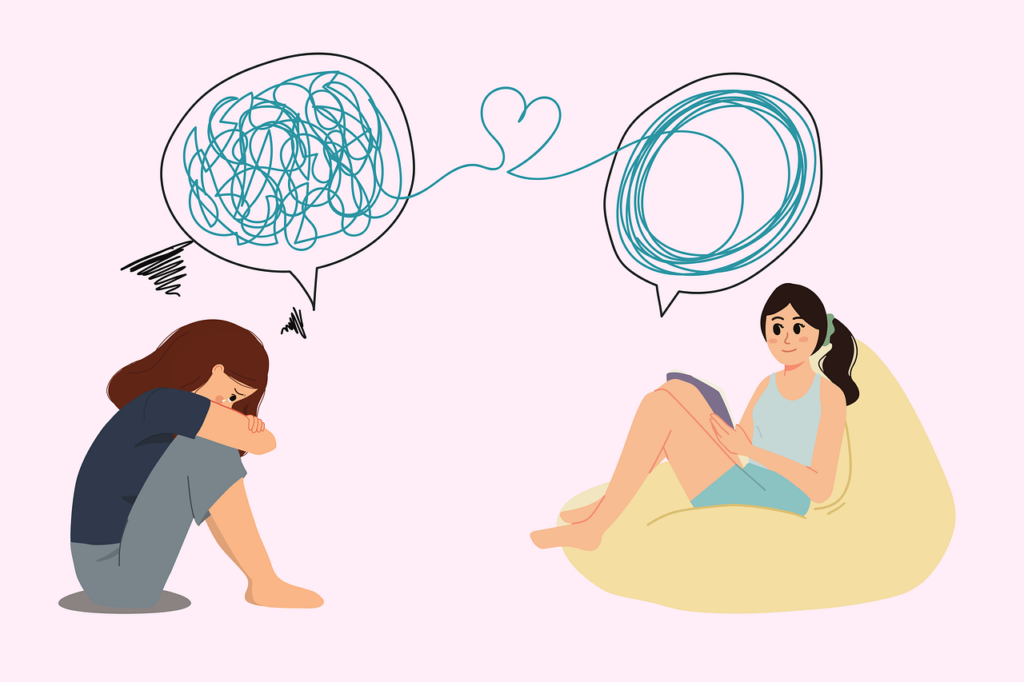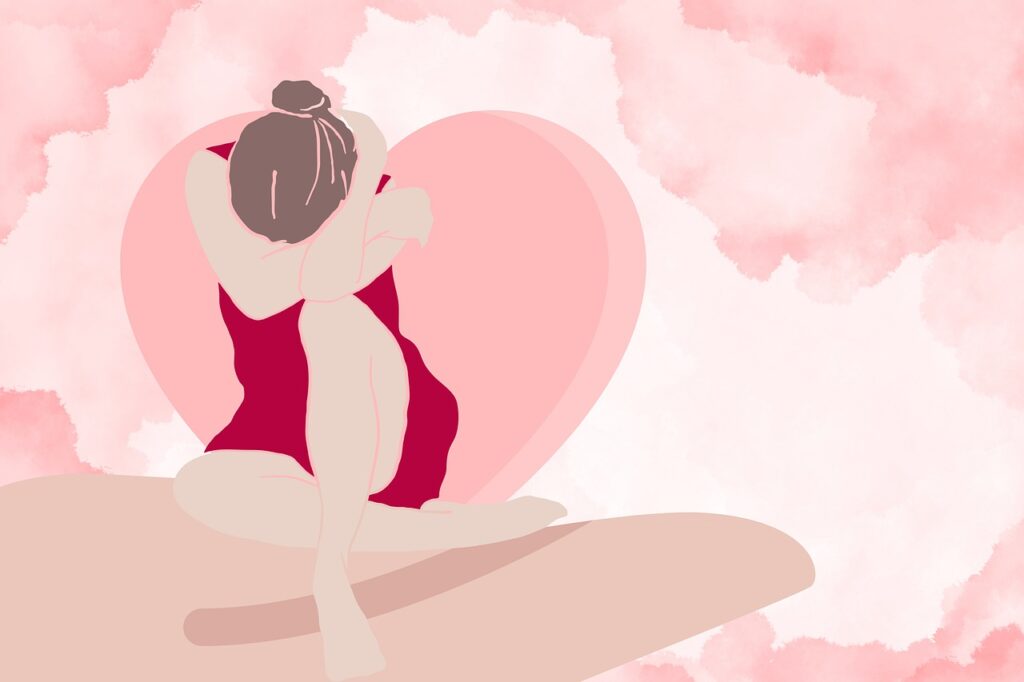Today we will again analyze the phenomenon of love. But more of its dark side. Does it seem to you that your feelings for him or her can sometimes be too intense? Or have you noticed an unhealthy attachment in someone? Whether the situation applies to you or someone else, it’s worth taking our next personality quiz. We’ll examine your mind in detail, and that way you’ll know if you might actually have an obssesive love disorder. But first we’ll do a little research on the problem so we don’t miss anything.
We have a lot of interesting quizzes for you! Check out these – Stress Test or Love Tester!
The disorder is called the Adele syndrome. It is named after the daughter of writer Victor Hugo. The young woman had an obsessive love for a certain soldier. She followed him around the world desiring to marry him, even though he did not consent. Her obsession lasted as long as nine years.
She paid off his debts and spent a lot of money on travel. Eventually she ran out of money, was found impoverished and sent home. She was locked up in a mental institution, which at the time was not a nice place to be. Adele Hugo was convinced for the rest of her life that she was the spouse of her chosen one. She constantly talked about him and looked forward to his visit, even though he never visited her. She died in this mental institution without ever having known love.
Discover what’s most important in life with the How To Be Happy quiz!
Love causes many changes in the body, which makes us feel differently. Sometimes it can cause really intense emotions that are hard to deal with. But how do we recognize when our abnormal state is normal and healthy, and when it starts to become dangerous? We have a few ways to recognize the difference between harmless love and obsession.
Love starts to become an obsession when it starts to affect our lives too much and causes problems. A person who is obsessively in love no longer takes care of his or her basic needs, causing health to decline. Also, the duties that this person used to perform conscientiously, he now neglects and has problems because of it. An obsessive person may lose his job or drop out of school because of this and not care about it at all.
What if it’s just an innocent crush? Take our Am I In Love Quiz! Or maybe you want to know your future husband?
Relationships with family and friends are also neglected. Relatives often don’t understand the obsessive person and may cut off contact. Because of this, the person loses himself even more in his disorder and does not get the help he needs. For such a person, values change, nothing else matters anymore, only their chosen one.
A person who is obsessively in love has problems with logical and realistic thinking. Obsessed people constantly lie to themselves, living in a dream world. These people create various scenarios in their minds with their loved one and really believe them.
They tell themselves that their feelings are reciprocated, even when it is obvious that the person spurns them and is not interested. They may also tell themselves that they already have something in common, that they are a couple or even married. They can’t distinguish between fiction and reality, and this is a very dangerous symptom, reminiscent of psychosis.

People as a result of obsession stop taking care of themselves in various ways. They have trouble sleeping due to obsessive thoughts. They constantly strive for contact with their beloved, thus wasting time and exposing themselves by following and imposing themselves.
Depressive states and apathy alternate with states of euphoria also occur. Obsessed people may blackmail their beloved that if he or she does not reciprocate their feelings, they will hurt themselves or take their own lives. They are ready to sacrifice everything for love – money, health, everything that was once important to them. Also, thoughts and even suicide attempts can occur in this obsessive disorder, which is why it is so dangerous.
Do you have suspicions that you are trying too hard? Take our Am I Clingy test!
Some people may be more predisposed to obsessive disorder. Certain personality traits make us more susceptible to it. It is useful to be mindful of our own weaknesses and to be aware of the dangers that may befall us. If you prefer to be prepared for anything, see our list of obsessive love disorder causes.
Obsessive love disorder and childhood trauma may be related. If you have noticed anything suspicious in yourself, don’t worry. The aspects described above do not guarantee you obsessive love disorder. If, on the other hand, you have them all, just be attentive and aware of your feelings.
If you’re having trouble with yourself, take our psychological quiz and find out why you feel bad.

Every disorder can be cured or alleviated so that our lives are made easier. For unhealthy mental states, therapy is always necessary. People who have obsessive love disorder must first of all realize that their condition is not good. They need to learn to focus on their own needs and build healthy relationships. Above all, they work on their self-esteem and fear of loneliness.
You can find more psychological tests here – Sociopath Test, Schizophrenia Test or Introvert Test.
They learn to live alone and find out that loving themselves is enough. An obsessed person will also learn to control emotional vacillation and depressive states through therapy. With psychological help, such a person can change his life for the better. Therefore, if you notice many symptoms in yourself, don’t be afraid to reach out for help. Therapy helps all people, and everyone has some kind of problem that is worth hearing.
There are also more disorders related to love. After all, the feeling of falling in love can be really strong, so it can cause all sorts of dysfunctions. It’s worth being aware of their occurrence, because this way we can more easily avoid them, or recognize them more quickly.

One such dysfunction is attachment disorder. Some people may have problems with building interpersonal bonds. This occurs as early as childhood, when our relationship with our parents was inadequate. This disorder makes us incapable of initiating or maintaining lasting bonds with people. Even if we manage to maintain contact with someone, we may self-sabotage our relationships.
Such people are withdrawn, distrustful and very sensitive to rejection. They can be aggressive with themselves or others. They also often cannot distinguish whether a relationship is good for them or not. They may have relationships with toxic people who further exacerbate the symptoms of the disorder.
There is also relationship obsessive-compulsive disorder. People with this disorder feel ongoing worry and anxiety about their partner. They feel constant fear and insecurity.Such people also need a lot of attention and constant reassurance that they are loved.
Be sure to find out if your crush likes you with our special quiz! You can also check out this one – Why Am I Single?
The two disorders mentioned above can have similar symptoms, so it is useful to be able to distinguish between them. Take our test and see if you’re okay. If not and you are worried about it, we recommend seeing a therapist psychologist, who will surely help you.